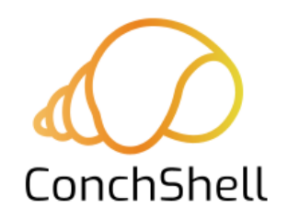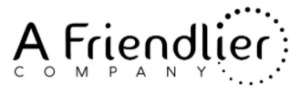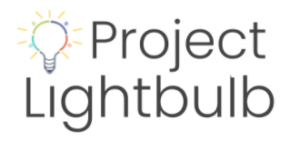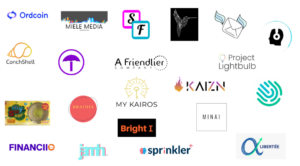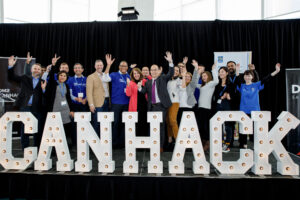Underrepresented communities continue to face systemic barriers and steep challenges when it comes to accessing entrepreneurial opportunities from Canada’s thriving tech ecosystem. As tragic events continue to take place around the world against visible minorities, confronting racial injustice continues to be a necessity and change can only begin with open and honest conversations.
In light of the International Day for the Elimination of Racial Discrimination, Abdullah Snobar, Executive Director of the DMZ, took to LinkedIn to chat with leading executives and startups to discuss how we can collectively create an equitable future for Canada’s tech ecosystem.
Meet our panelists:
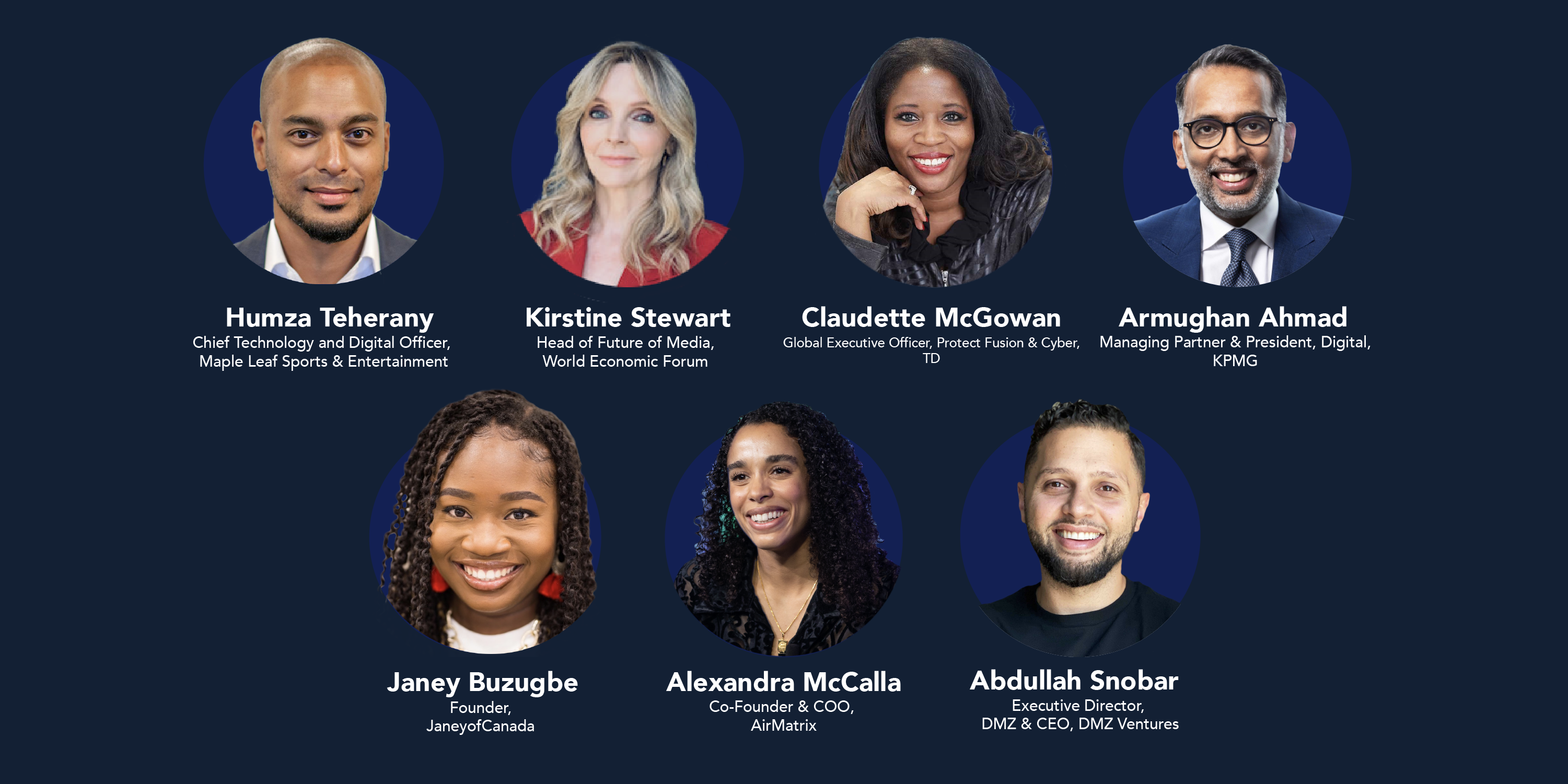
- Humza Teherany, Chief Technology and Digital Officer, MLSE (Maple Leaf Sports & Entertainment Partnership)
- Kirstine Stewart, Head of Future of Media, World Economic Forum
- Claudette McGowan, Global Executive Officer, TD
- Armughan Ahmad, Managing Partner & President, Digital, KPMG
- Janey Buzugbe, Founder JaneyofCanada (WITEN) and Head of The DMZ‘s Black Innovation Programs
- Alexandra McCalla, Co-founder & COO, AirMatrix
- Abdullah Snobar, Executive Director, The DMZ and CEO of DMZ Ventures
With this conversation, we strived to have an open discussion around the importance of diversity in our ecosystem, share lived experiences and underscore the important role we all play in creating an inclusive and equitable tech community.
Let’s dive into it.
Question 1
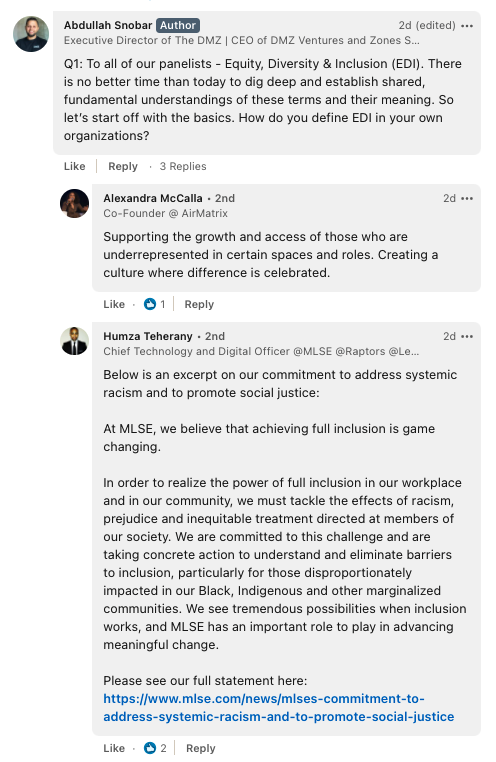
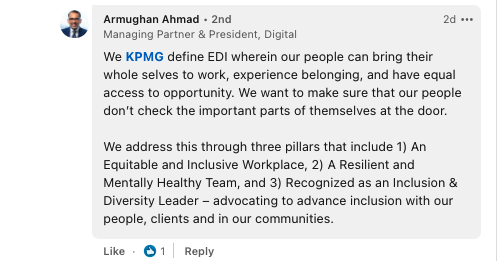
Question 2
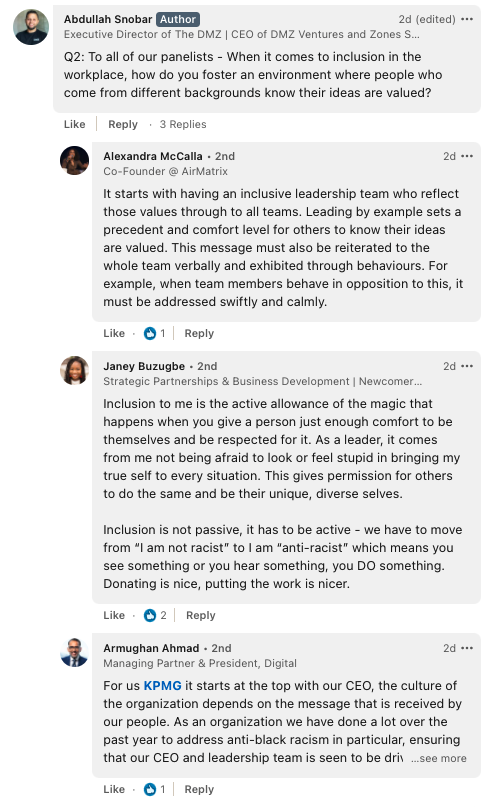
Question 3
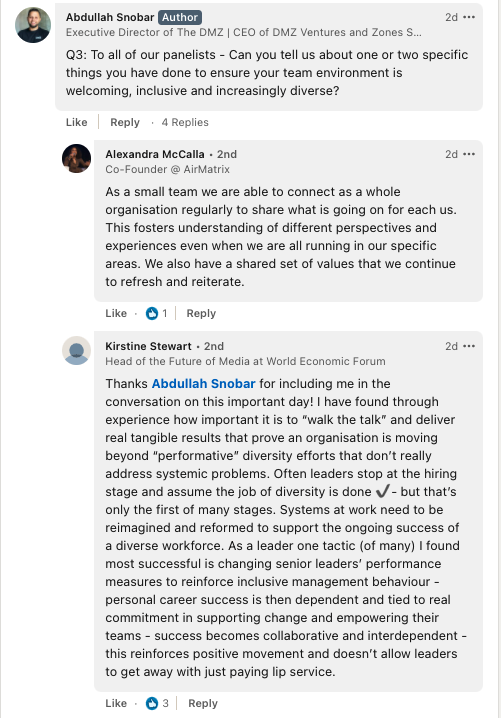
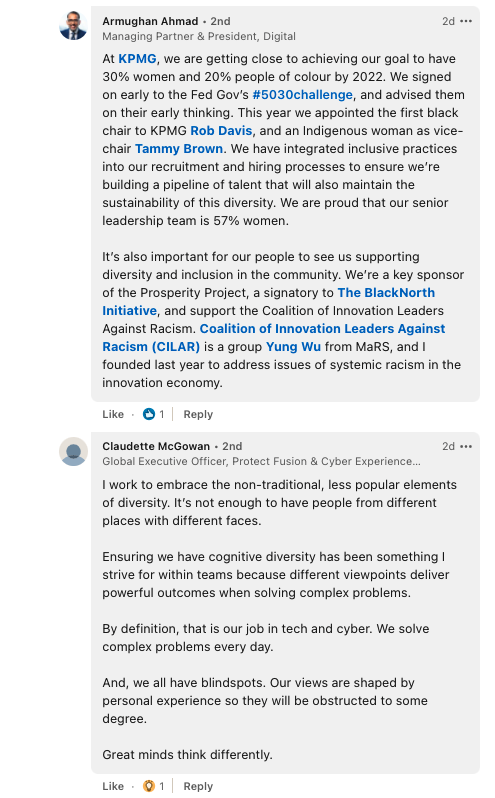
Question 4
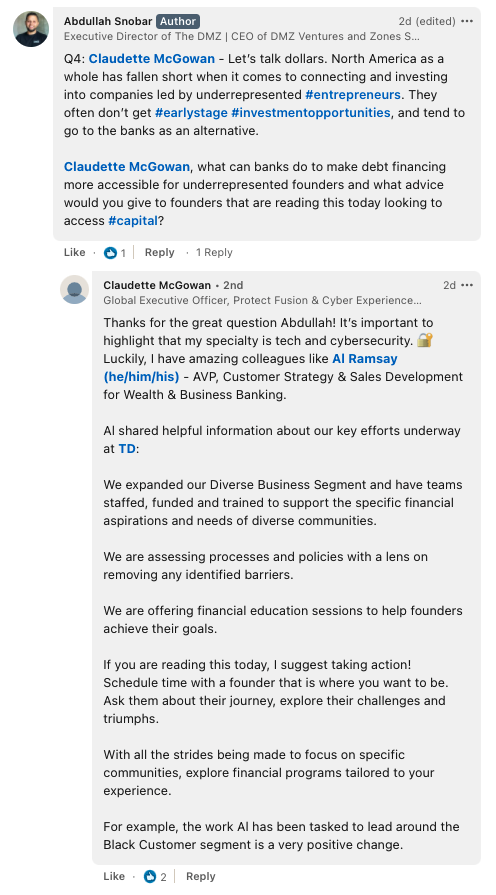
Question 5
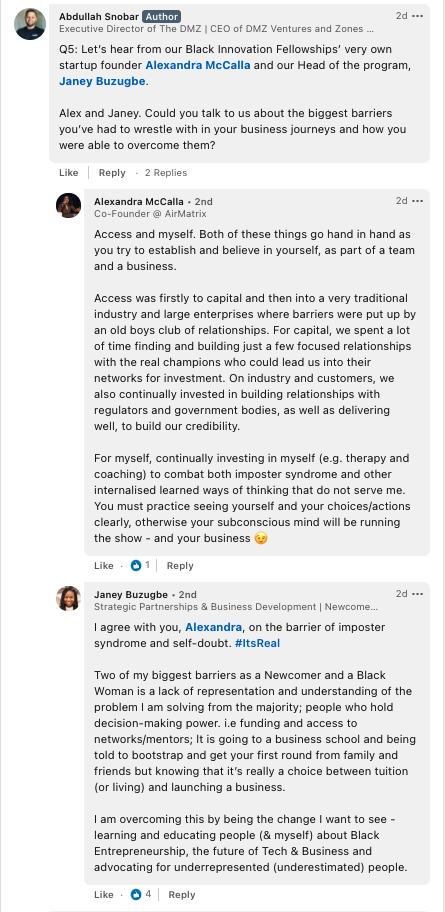
Question 6
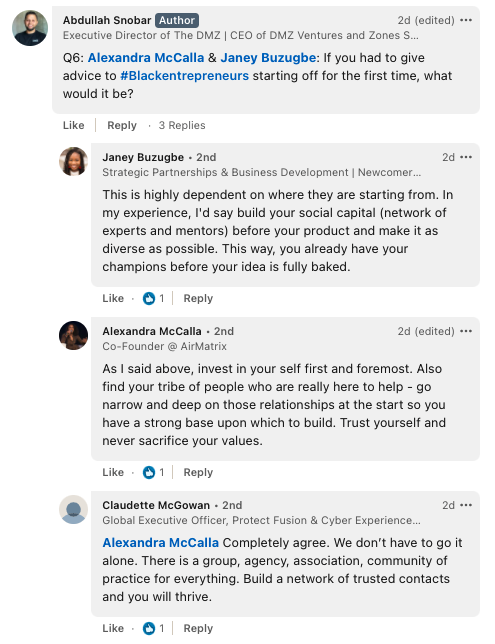
Question 7
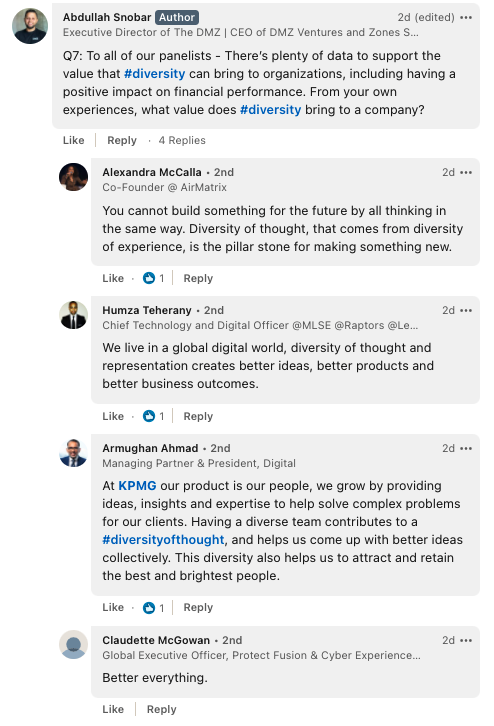
Question 8
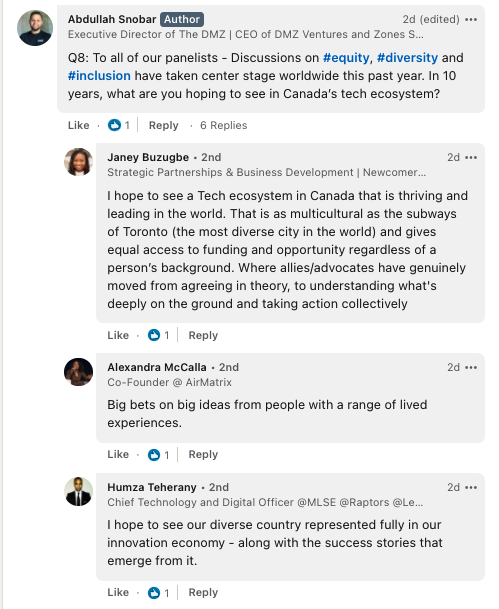
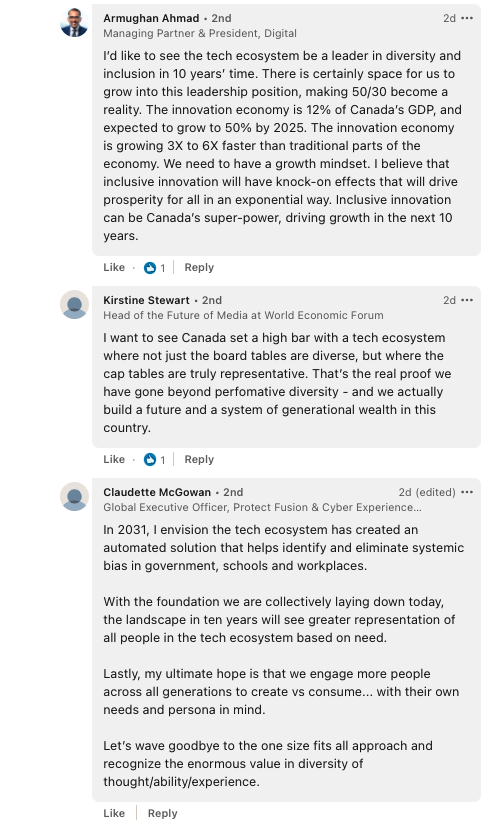
For the entire LinkedIn chat conversation, please click here.
At the DMZ, we know that a strong tech ecosystem is one that fosters diverse perspectives and actively removes barriers for those hindered by systemic discrimination. We continue to actively work on leveling the playing field for everyone’s entrepreneurial success. For more information on our Black Innovation Programs, please go to dmz.ryerson.ca/bip/





 It sounds like the platform is valuable to companies at all stages of growth, not only young startups looking to get incorporated?
It sounds like the platform is valuable to companies at all stages of growth, not only young startups looking to get incorporated?


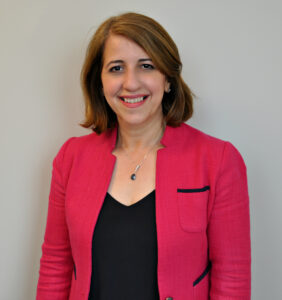 Thankfully, organizations like
Thankfully, organizations like 
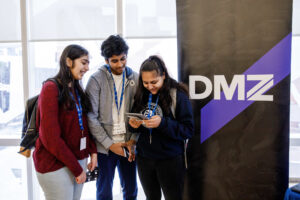


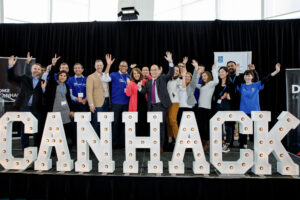 This year, for
This year, for 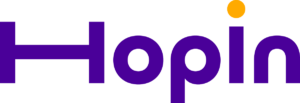
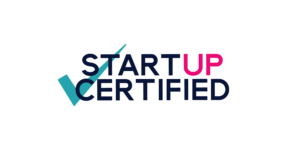 I was a student working at
I was a student working at  Before that placement, I had been working for the government for six years. I ran into the “red tape” problem – something that you hear about, but don’t believe it until you see it. I figured that there has to be a faster way and a better way for me to have an impact. I turned to startups. It seems to really be the best way to change something in the world.
Before that placement, I had been working for the government for six years. I ran into the “red tape” problem – something that you hear about, but don’t believe it until you see it. I figured that there has to be a faster way and a better way for me to have an impact. I turned to startups. It seems to really be the best way to change something in the world. We help companies expand their hiring pools. One of our companies is Maple Lodge Farms in Brampton. We helped them hire their first employee from Scarborough, which is really not a possible transit route if you don’t have a car, right? That’s the value we add to the companies.
We help companies expand their hiring pools. One of our companies is Maple Lodge Farms in Brampton. We helped them hire their first employee from Scarborough, which is really not a possible transit route if you don’t have a car, right? That’s the value we add to the companies. For the first couple of months, everyone was just trying to figure out their place in this world now. We took that time to help those in need. We realized we weren’t going to generate revenue for at least a few months, so we figured we might as well do something productive with the time and help out.
For the first couple of months, everyone was just trying to figure out their place in this world now. We took that time to help those in need. We realized we weren’t going to generate revenue for at least a few months, so we figured we might as well do something productive with the time and help out. 


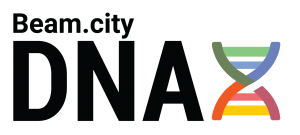 Zeze Peters, Founder & CEO of
Zeze Peters, Founder & CEO of  Kate Mansouri, Founder & CEO of
Kate Mansouri, Founder & CEO of 
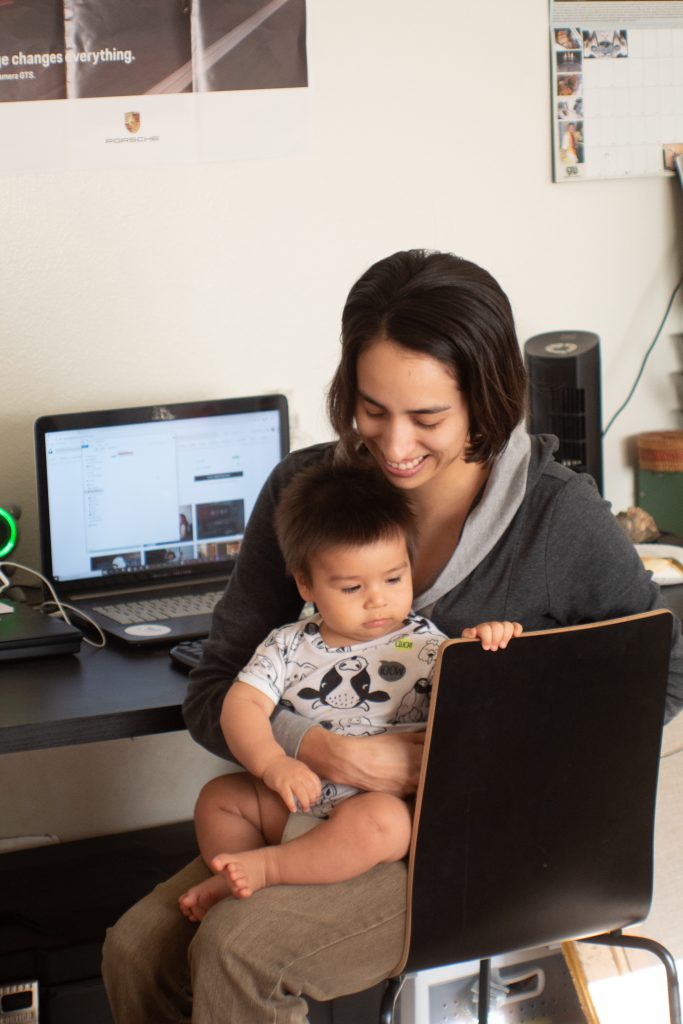 As the digital workplace and classroom may very well be our reality for the next while, we asked founders if they have tips to offer other parents for improving work-life balance and family dynamics in the current environment. Parents also explain that amidst the pandemic, they have seen some benefits to keeping the family at home – and have been embracing the silver linings that have come with it.
As the digital workplace and classroom may very well be our reality for the next while, we asked founders if they have tips to offer other parents for improving work-life balance and family dynamics in the current environment. Parents also explain that amidst the pandemic, they have seen some benefits to keeping the family at home – and have been embracing the silver linings that have come with it.

